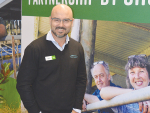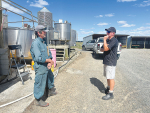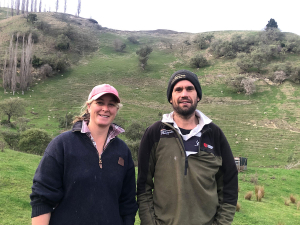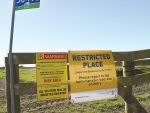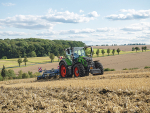HUGE FOCUS is on the negative impact of the global financial crisis and the resulting market volatility. Farmers should also consider the benefits of the changing global landscape, to identify how they can make those opportunities work for them personally.
With record high commodity prices and markets on our doorstep willing to pay well for our produce, the environment is ripe for New Zealand farmers to succeed. But success needs to be built on a strong foundation and that requires addressing issues affecting farm performance.
One big issue is income volatility, uncertainty about how much you're going to get paid. Regardless of whether the income volatility is driven by economic or climatic events, the effect on farmers is the same. Some issues can be 'treated' specifically, such as fixing interest rates or installing irrigation systems. But look also at ways to improve the overall 'health' of your farm to provide resilience from income volatility.
From our experience, the farmers well placed to manage income volatility are the ones strengthening their balance sheets by reducing debt and achieving good productivity, revenue and profitability. Research suggests this success is based on financial and business acumen, not farm type, size, region or age of operator.
So what are the top performers doing differently? First, they have a strong balance sheet and they understand in detail the cost of running their farm, including:
Cost structure – how much they are getting paid and when? What are their expenses and how are they paying for these?
Are there any costs that can be reduced, deferred or removed from the
balance sheet?
Debt levels – how much is owed, what are the terms of the loans and what's the most effective way to pay down this debt? (Two thirds of farmers we spoke to told us that reducing debt was a priority for them over the next three years. If you have multiple loans with multiple terms, then it's worth getting advice on the most effective way of paying down those loans.)
Break-even point - What's the lowest payout or price per unit their farm can tolerate without making a loss?
Second, they know what success looks like to them and have a plan to achieve that success. They understand the importance of business and strategic planning:
They control what they can control. They have identified the key risks that could affect their plan and either have a risk mitigation plan or a capital reserve that enables them to buffer the impact.
They benchmark their performance against their peers, measure their progress and identify what they need to change to reach their target.
They have a budget that is regularly reviewed and have a strong understanding of their income and expenditures (otherwise known as cash flow), which helps them to make decisions when the game changes, be it weather, costs or returns.
They make sound decisions on the most appropriate use of surplus cash generated as a result of their effective budgeting and cash-flow management.
In short, this is something all farmers can achieve, and current low interest rates and high commodity prices make this an ideal time for farmers to look at the basics of their financial management to 'future proof' the farm against income volatility.
• Graham Turley is managing director commercial & agri at ANZ.


